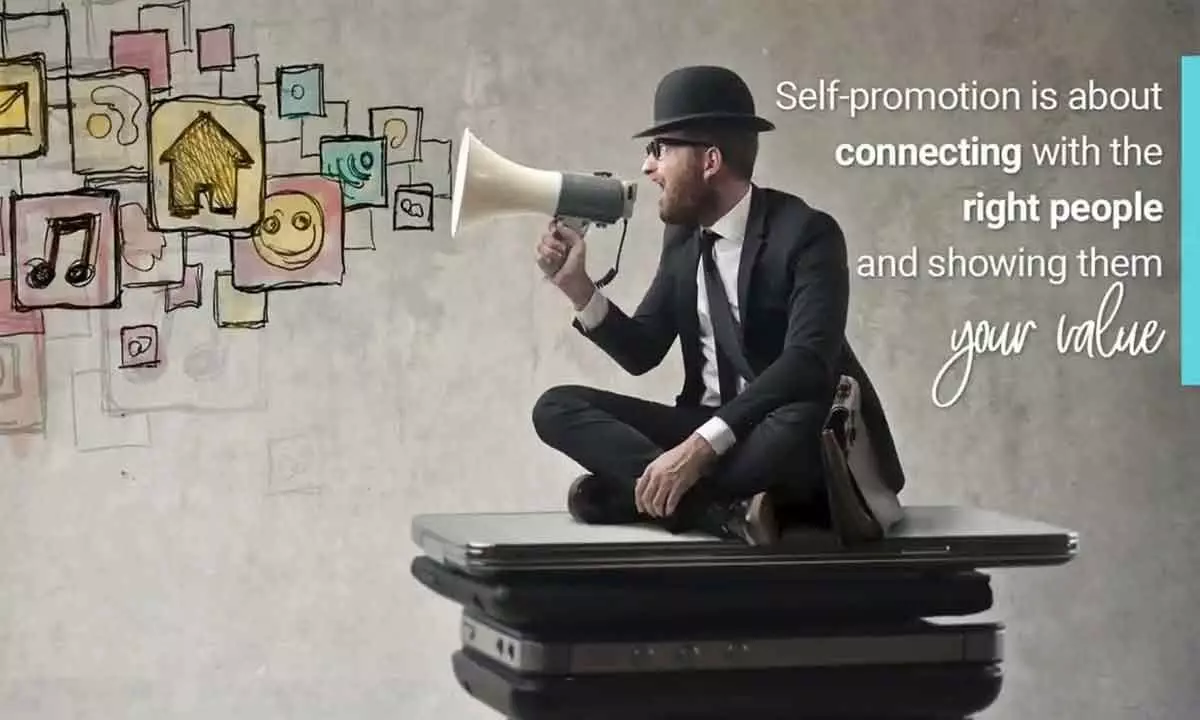The Importance of Self-Promotion

Attraction is a joint desire to connect. When the attraction is there, receipt of information feels more akin to a natural flow than a barrage. Additionally, attraction operates on a different rhythm than promotion. It feels friendlier, more relaxed. The aim of Public Relations messaging and engagement based on attraction is to convert passive stakeholders into active ones who want to listen to you and want to participate
If you are going to influence others and persuade them to your point of view, ideally it would be great to hold an important position, be highly visible, and know how to get your cause in the media, or even social media. John D. Rockefeller has rightly said that next to doing the right thing, the most important thing is to let people know you are doing the right thing.
Appearing in print can help your career or whatever cause you represent. Print includes books, articles, op-eds, and letters to the editor, newsletters and all sorts of material on the internet. Print may be under attack these days, but it’s still a formidable weapon in promoting yourself and your organization. CEOs, opinion leaders, government representatives, the media, and most white-collarprofessionals still read print and will continue to do so.
A famous saying goes – “If you change the way you look at things, the things you look at change.” And therein lies a critical insight, one that frequently, and oddly, is often hidden - the difference between promotion and attraction.
Promotion is one-way communication, a push of information via any one or collection of channels. It is, essentially, a demand to be heard and seen. From the perspective of the target audience, it is a receipt of information, wanted or unwanted. Promotion asks for stakeholder time, attention and consideration, without regard to their schedule or need. As a result, promotion can be perceived as irritating. Unsolicited. Something to be ignored. We experience it every day when we open our mailbox. Viewed positively, promotion can inspire curiosity. It creates awareness. It makes an offer. Promotion can also provoke an action, whether this is information-seeking or something more.
The internet is a great new tool not only for businesses and advertisers but also for information seekers. There are no clear boundaries between public and private life anymore. You have your opinion and you try to share it with as many people as you can. With some quick thinking, reaching out can lead to great new connections and media attention. And networking is all about this.
But Attraction is Mutual
Attraction is a joint desire to connect. When the attraction is there, receipt of information feels more akin to a natural flow than a barrage. Additionally, attraction operates on a different rhythm than promotion. It feels friendlier, more relaxed. The aim of Public Relations messaging and engagement based on attraction is to convert passive stakeholders into active ones who want to listen to you and want to participate.
Consumers need some semblance of a feeling that a company knows them and cares about them and their needs, challenges and aspirations, and is delivering exclusively for them. This approach creates attraction because it requires stakeholders to allow your message into their life versus promotion, which pushes itself in their faces. The receipt of information, in the case of attraction, is usually wanted.
I am very fond of the American poet Maya Angelou. She wrote in her autobiography, “I have learned that people will forget what you said, people will forget what you did, but people will never forget how you made them feel.” I am attached with this because I’ve experienced it myself and I’m sure many of you too. Making them feel good is an art. The first commandment of this art is to understand the difference between constructive and destructive criticism. You need to learn how to interpret criticism. Most of us feel that constructive criticism is when I criticize you; destructive criticism is when you criticize me. To understand it you will have to remember the context. In what spirit it was given?
You have to look beyond the words and determine the motives. You have to look beyond the criticism and see the critic. Believe me, most of the people you know will be happy with you. They will love your company because whatever motive behind your strategy has been, they will have the impression: “this guy is cool. He doesn’t take himself too seriously. He has the ability to laugh at himself. He is much more relaxed when given or giving criticism.”








